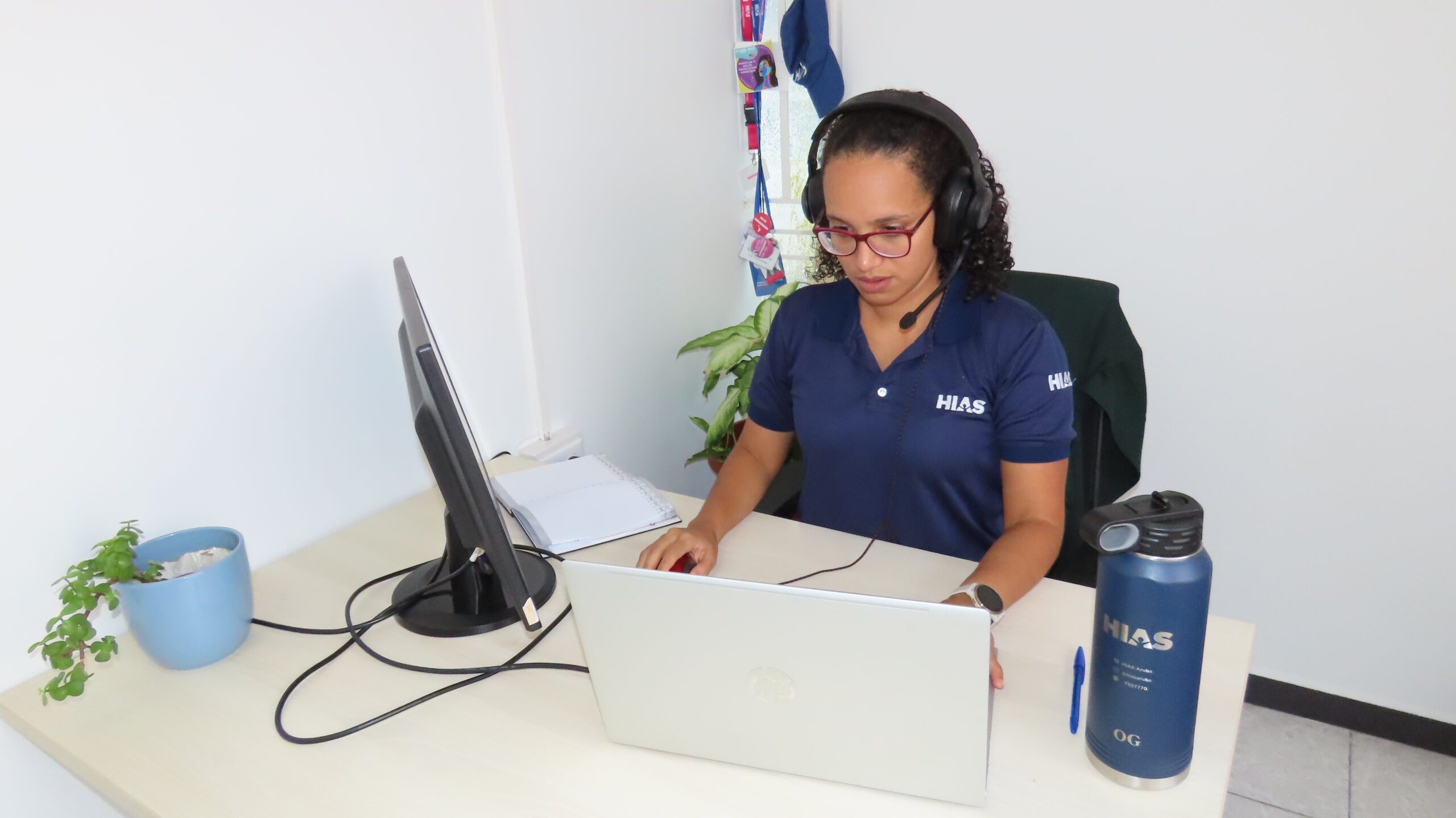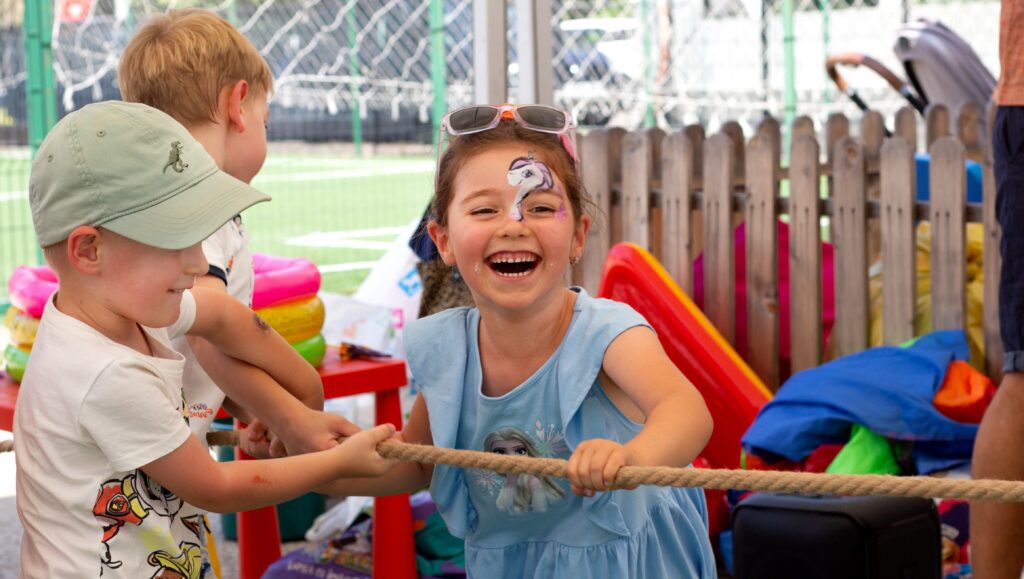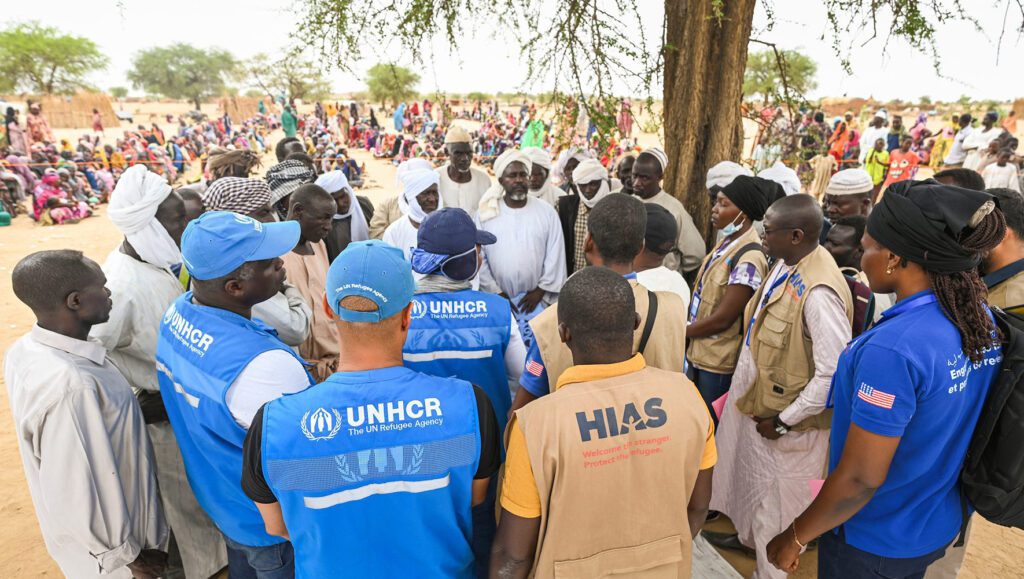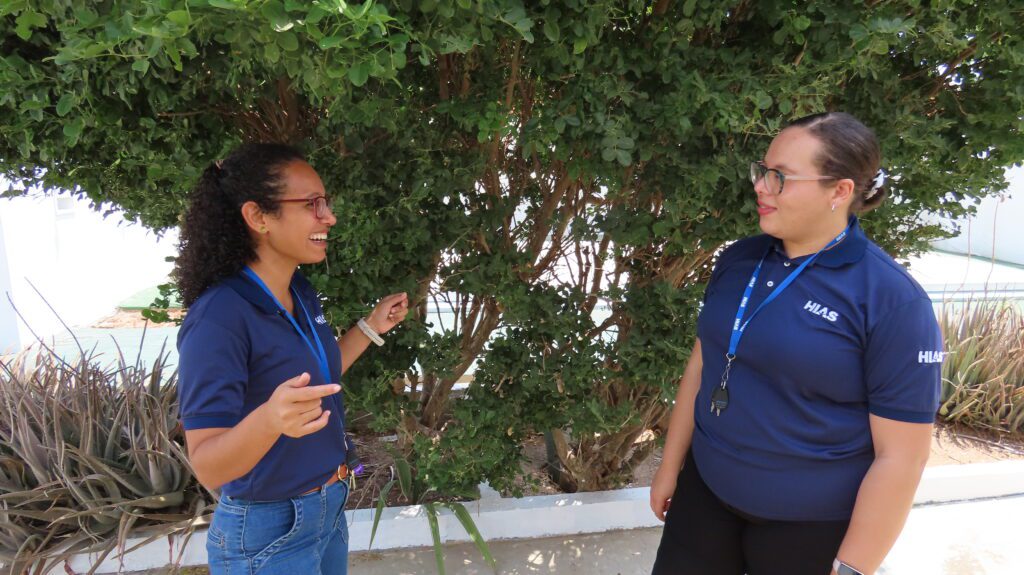
Soon after civil war broke out in Cameroon in 2017, the government enlisted Robert*, a former soldier from the English-speaking part of the country, to fight against separatist groups.
But after beginning his service, Robert felt like something wasn’t quite right.
“I started getting orders to kill people without any explanation,” he said. He decided to spare their lives and free them, but the decision came with a cost. “I knew I had to leave because my [own] life would be in danger.”
Robert’s escape from Cameroon first took him across the land border with Nigeria and included stops in Benin and Turkey before finally arriving in Bridgetown, Barbados, in 2019. Robert tried to start over in his new home. However, with no support network on the island, this was far from easy.
He eventually got in touch with HIAS and UN Refugee Agency (UNHCR), who supported him through the remote services program. This program provides services to asylum seekers and refugees living in 17 island states and territories across the Caribbean, where access to in-person support for displaced people is often very limited.
“We’re currently the only providers of remote mental health, cash and voucher, and gender-based violence assistance across the Caribbean sub-region,” said Estefanie Britton, project specialist for the Caribbean at HIAS. “In that sense, the program is unique.”
A Challenging Context for Refugees and Migrants At-Risk
The remote program, which began in 2021, provides case management services, cash and voucher assistance (CVA), skills-training courses, language classes, and mental health and psychosocial (MHPSS) support to over 200 asylum seekers and refugees, such as Robert.
When Robert arrived in Barbados, he initially received case management services from UNHCR, who supported him and accompanied him in the process of receiving a residency permit. Then, UNHCR put him in touch with HIAS, who provided him with psychological support, remote IT training courses through Coursera, economic empowerment courses, and CVA to pay for everyday expenses.
“We believe that every person that has been forced to flee should be able to pursue a better future,” said Lauren Schoenster, protection associate at the Caribbean Protection Unit, for UNHCR. “We work with HIAS in the Caribbean to leverage our resources and provide complementary services to people that need support.”
A Brighter Future Ahead
The support that Robert has received through the remote services program in Barbados has made a lasting impact on him. “Thanks to the [psychological] support, I figured out how to deal with my daily life, my daily activities,” he said. “I still study with Coursera to this day. I’m doing multiple sessions with the psychologist, she helps me and talks to me about any problems I have.”
Now established in Barbados after several years, Robert is now looking ahead to the future. Even though he knows that he can never return to Cameroon, he is hopeful about what might be around the corner. He is currently receiving support from UNHCR to find a long-term solution to his case and to reunite with his wife and children, whom he hasn’t seen since he left his country.
“I want to establish myself with my family and move on with a new life,” he said. “I want to start a new life with them.”


